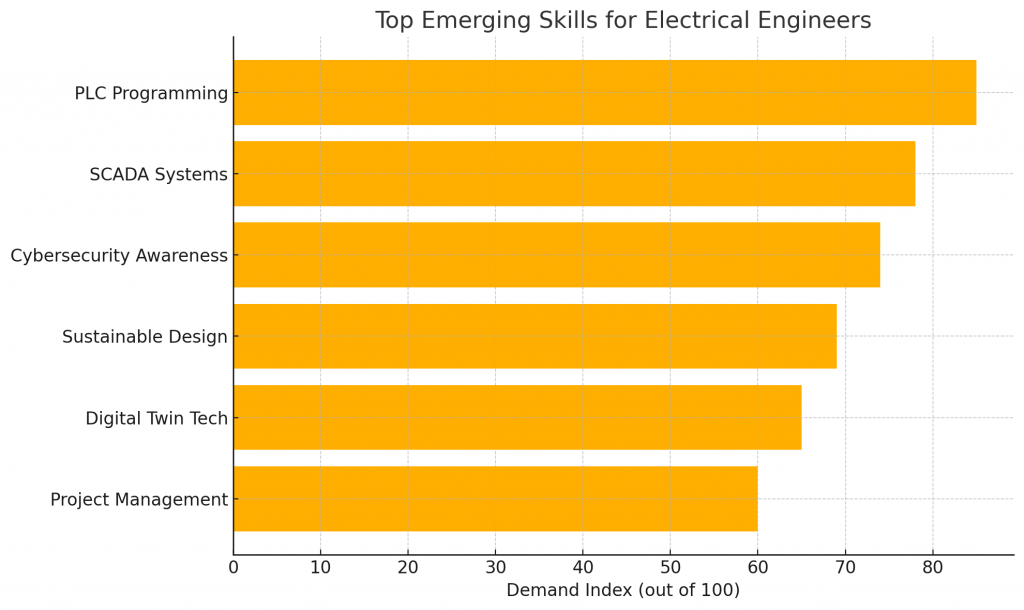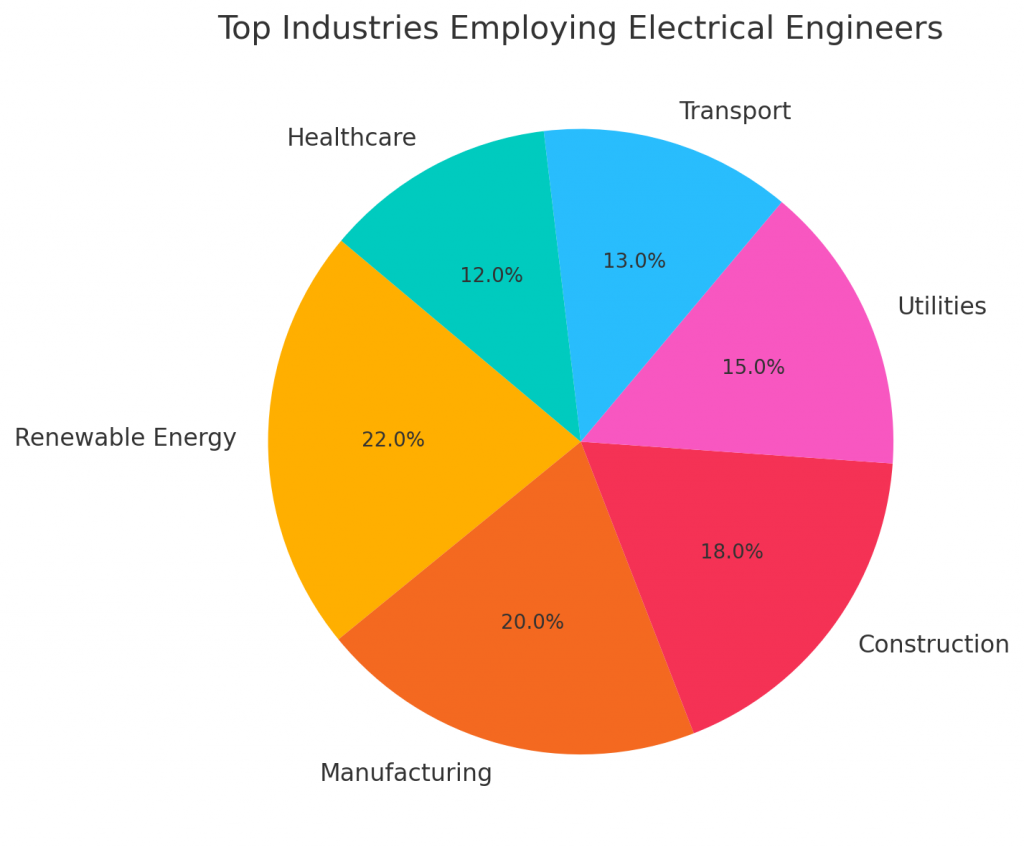The world we live in today is powered, quite literally, by the work of electrical engineers. From the energy that lights our homes to the complex systems behind cutting-edge medical devices and manufacturing plants, electrical engineers are central to innovation and infrastructure. But what does it take to thrive in this evolving field today?
In this comprehensive guide, we’ll explore the core and emerging skills every modern electrical engineer should know, the certifications that can elevate your CV, and the diverse career paths available across multiple industries. Whether you’re just starting out or looking to pivot, this is your roadmap to a thriving career.
While a degree in electrical engineering is a minimum requirement, additional certifications show a commitment to development and can open doors to specialist roles or leadership positions.
Why the Role of the Electrical Engineer is Evolving
Traditionally, electrical engineers were associated with power generation and transmission. While those areas still play a huge part, today’s engineers are just as likely to work in automation, renewable energy, robotics, aerospace, and advanced manufacturing.
Key drivers of change include:
- Increased focus on sustainable energy solutions
- Integration of AI and IoT in industrial processes
- Growing demand for electrification in transportation
- Emphasis on safety and efficiency in electrical systems
This evolution or shift means that modern electrical engineers need to be multi-skilled, adaptable, and always ready to upskill.
Core Skills Every Electrical Engineer Needs
No matter your specialisation, certain foundational skills remain crucial in the electrical engineering world.
1. Problem-Solving and Analytical Thinking
From troubleshooting circuits to improving system performance, critical thinking is key.
2. Technical Proficiency
Understanding electrical systems, wiring, schematics, and using tools like MATLAB, AutoCAD Electrical, or PLC programming software has become essential.
3. Project Management
As many engineers oversee installations or development cycles, knowledge of budgeting, scheduling, and resource planning is definitely an added plus.
4. Health & Safety Awareness
Familiarity with safety standards and regulations such as IEC or ISO frameworks is vital, especially for high-risk environments.
5. Communication and Teamwork
Engineering in general rarely happens in isolation. Engineers must collaborate with multidisciplinary teams, including civil engineers, designers, and contractors.
Emerging Skills: Future-Proofing Your Career

To remain competitive, electrical engineers must stay ahead of the curve. Here are some high-demand areas worth investing in:
- Programmable Logic Controllers (PLCs) and industrial automation
- SCADA systems for monitoring and controlling infrastructure
- Cybersecurity in electrical systems, particularly for smart grids
- Sustainable design practices, including energy efficiency standards
- Electric vehicle (EV) charging infrastructure and systems
- Digital twin technology in engineering design and simulation
These aren’t just buzzwords, they’re fast becoming required knowledge in sectors like manufacturing, energy, and transport. Employers are on the look out for talent who possess these skills.
Certifications That Can Make You Stand Out
While a degree in electrical engineering is a minimum requirement, additional certifications show a commitment to development and can open doors to specialist roles or leadership positions.
Here are a few valuable certifications, depending on your location and sector:
Ireland & UK:
- Chartered Engineer (CEng) via Engineers Ireland or the Engineering Council (UK)
- ETCI Certified (Electro-Technical Council of Ireland) for safe electrical installations
- CompEx Certification (for hazardous environments, especially in oil & gas)
- 18th Edition Wiring Regulations (UK-specific but valuable across electrical roles)
- Project Management Qualifications, such as PRINCE2 or PMP
International/General:
- Certified Energy Manager (CEM) – ideal for engineers in sustainability or building systems
- Six Sigma Certification – beneficial for manufacturing and process optimisation
- Certified Automation Professional (CAP) – great for roles involving control systems
Diverse Career Paths for Electrical Engineers

One of the biggest advantages of a career in electrical engineering is the range of industries you can work in. Here’s a look at just a few:
- Renewable Energy
From designing wind turbine systems to managing solar farm installations, opportunities in green energy are booming at the moment. - Medical Devices and Healthcare
Work on life-saving technologies, including imaging machines, diagnostic equipment, and robotics in surgery. - Manufacturing and Industry 4.0
Smart factories are driven by automation, robotics, and sensor technology, all requiring the skills of electrical engineers. - Construction and Infrastructure
Engineers in this space handle everything from power distribution to lighting systems in commercial and residential projects. Electrical engineers are always in high demand in this industry. - Utilities and Power Generation
Traditional but evolving, this sector now includes smart grid systems, hydro, and energy storage technologies. There are sure to be even more changes and developments in this sector in the coming years. - Transport and EV Development
With the rise of electric vehicles, there’s strong demand for electrical engineers in automotive and public transport innovation.
How to Grow Your Career with PE Global
At PE Global, we work with some of the world’s leading employers in engineering, including roles in:
- Pharmaceutical & Biotech Facilities
- Energy & Utilities Projects
- Advanced Manufacturing Plants
- Construction & Infrastructure Developments
Whether you’re a newly qualified engineer or looking to take the next step in your career, our consultants can help match your skills and ambitions to the right role.
Ready to Power Up Your Career?
If you’re an electrical engineer looking to grow your career in Ireland, the UK or further afield, now is the time. With new technologies, expanding industries, and increasing demand for skilled professionals, your options are wide open.
👉 Browse our latest electrical engineering roles
👉 Upload your CV to stay on our radar
